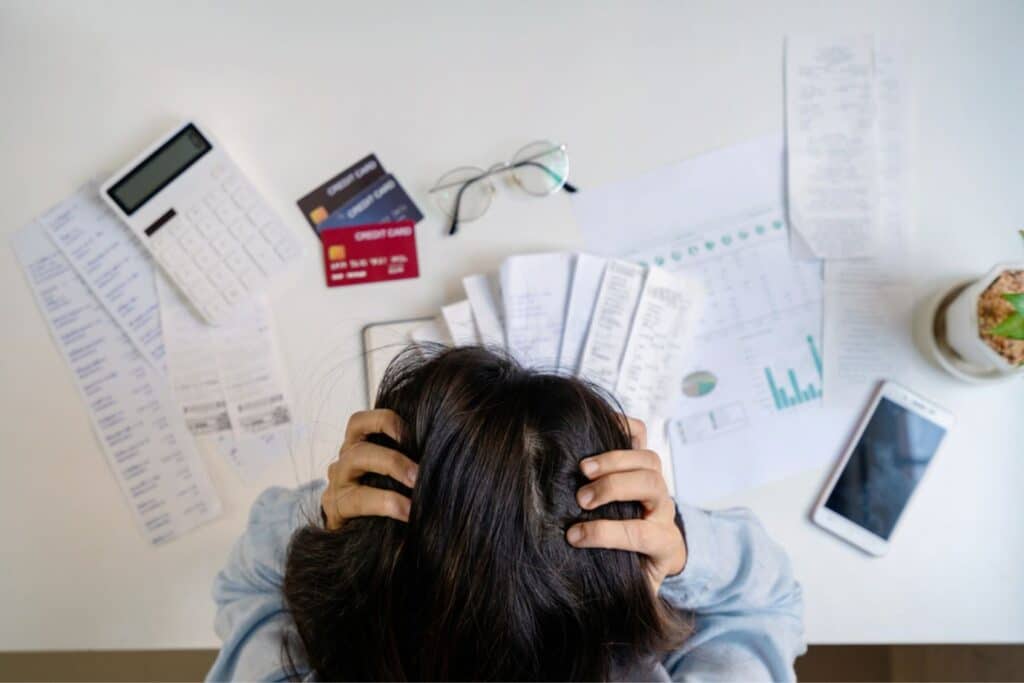More than 90 per cent of domestic violence victim-survivors continue to experience abuse after leaving a violent relationship, new research has found.
One of the most prevalent forms of domestic violence that remains ongoing is economic abuse, and today, on Economic Abuse Awareness Day, the Centre for Women’s Economic Safety (CWES) is calling on the federal government to introduce a suite of reforms that would better protect women from post-separation economic abuse.
In almost all domestic violence situations (99 per cent), a victim-survivor will experience economic abuse, CWES found in new research.
Insights into the impact of economic abuse can be found in a new short film released by CWES today as part of the organisation’s campaign, calling on the federal government to better protect women from economic abuse.
Allanah*, one of the women and victim-survivors featured in the short film, talked about how she was left “in tears” after banks repeatedly called her about debt that was left under her name by her perpetrator.
“This country is horrific – it’s not keeping women safe at any level,” Allanah said.
Another woman, Leah*, said spoke about the impact the abuse had on her mental health, including leading her to thoughts about taking her own life.
“Systems are set up to protect your information from strangers, not people you know,” Leah said.
CWES’ founder and director, Rebecca Glenn, said current security measures in place for government welfare access, banks and more enables abuse a lot of the time and does not adequately protect women from economic abuse.

“There are too many barriers and loopholes that prevent survivors from accessing government support and in many cases, the systems actually create more problems,” Glenn said.
“Perpetrators’ tactics – including online impersonation and with-holding of child support payments – are sneaky and too often the onus is on victim-survivors to prove. Government services like child support, the tax office, and Centrelink processes haven’t caught up.
“The most dangerous time for victim-survivors is when they leave an abusive partner and economic abuse is often the method perpetrators use to continue their control of victim-survivors when the relationship ends.”
What should the government do about it?
As part of CWES’ campaign, the organisation is calling on the government to review the MyGov platform and figure out ways to make it safer for women. CWES stresses the importance of consulting with victim-survivors on how this can be done.
Other reforms CWES are calling for include moving child support collections to the Australia Tax Office (ATO), introducing “innocent spouse relief” so the ATO can exercise discretion in chasing family-violence related tax debts, ensure that all Services Australia staff have undergone domestic and family violence training, and more.
“Measures that fail to independently financially support victim-survivors, protect their identity, support their access to legal advice, and hold perpetrators’ accountable, leave them vulnerable to debt, homelessness, losing their children, and unemployment,” Rebecca Glenn from CWES said.
“While there are positive steps being taken to improve the system within government and government organisations, we need to see real, urgent action.
“The system needs urgent reform in order to anticipate and prevent post-separation economic abuse before it occurs.”
CWES are hosting a webinar on Tuesday 26 November – Economic Abuse Awareness Day – where coercive control expert Jess Hill will join other guest speakers to discuss the issue.
If you or someone you know is experiencing, or at risk of experiencing, domestic, family or sexual violence, call 1800RESPECT on 1800 737 732, text 0458 737 732 or visit 1800RESPECT.org.au for online chat and video call services.
If you are concerned about your behaviour or use of violence, you can contact the Men’s Referral Service on 1300 766 491 or visit http://www.ntv.org.au.
Feeling worried or no good? No shame, no judgement, safe place to yarn. Speak to a 13YARN Crisis Supporter, call 13 92 76. This service is available 24 hours a day, 7 days a week.



